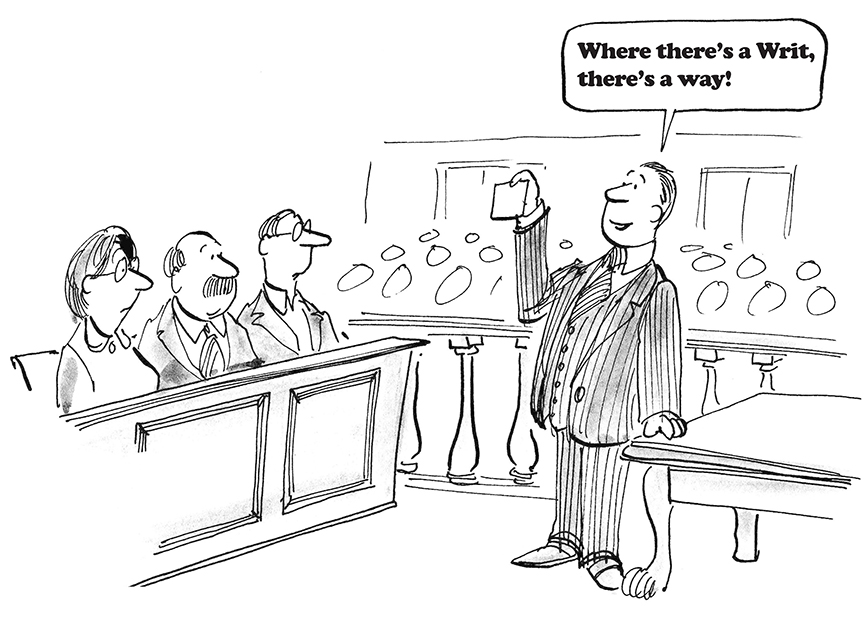
If you’ve already obtained a court judgment and you still haven’t been paid, you’ve got a stubborn or uncooperative debtor who may need more convincing.
Fortunately, there’s an efficient, tried & true system for collecting debt in Texas. You may have already filed an abstract, which is important, but Texas law offers you many avenues to collect your judgment. Now you may need to take things to another level: The Texas writ of garnishment.
WHAT IS IT?: A writ of garnishment is an order of a court to a third party (say, for example, a bank) that is in possession of assets owned by the debtor. The writ of garnishment orders the third party to surrender those assets to the court to satisfy the judgment.
Frequently our clients did business with the debtor and they have a canceled check. That’s all we need to move forward.
You can probably imagine what an attention-getter this can be. If, for example, a bank is receiving the writ of garnishment, they’ll “freeze” the debtor’s bank account and start asking questions.
Some corporate debtors treat the debt collection process like a game; even after a court judgment, they’ll sometimes ask to settle for pennies on the dollar.
Gaining a writ of garnishment can convey that you mean business about collecting all the money owed to you.
CAUTION: Here is where you have to be very careful: In order to apply for a writ of garnishment, you need specific information about the debtor; namely the debtor’s bank, the proper name on the bank account(s) and, if possible, the account number(s). Usually, all of this information can be gleaned from a canceled check. If you have copies of old checks sent by the debtor (perhaps in response to invoices), you will have the necessary information for filing a writ of garnishment.
NOTE: Nothing in life is free and so, you’ll likely have to pay attorney’s fees to the third party that receives the writ of garnishment. However, there is good news: The fees are typically low and in many cases, the process is simpler and therefore, cheaper to pursue.
Filing a writ of garnishment is step two. Next, we explore the Post-Judgment Investigation.
Collecting Judgments in Texas is a multipart series offered by attorney Darrell W. Cook. Mr. Cook is one of the foremost experts in Texas on maximizing wealth through the efficient collection of outstanding debts. He’s particularly expert in the art and science of collecting money owed following the issuance of a legally enforceable court judgment.
To learn more about collecting judgments and debts, and to read some pretty interesting and sometimes bizarre stories, follow us on LinkedIn and check out our collections blog here.
Your Legal Question
Please use the form below to ask any question. We will attempt to answer as quickly as possible.